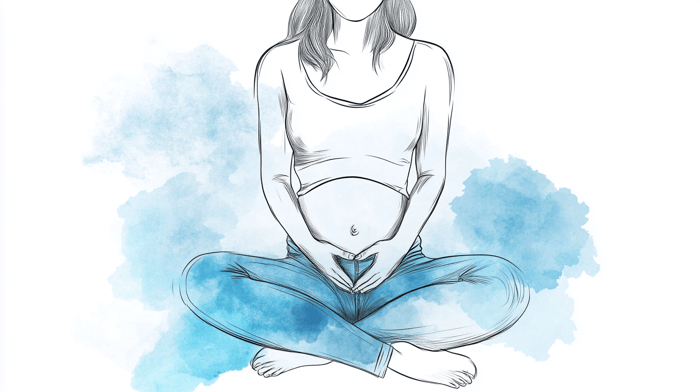Maintaining a healthy vagina starts with good overall health. Regular exercise, a balanced diet, enough sleep, and managing stress all contribute to vaginal health. Exercises like walking, running, and Kegel exercises can strengthen pelvic floor muscles, improving function.
Vaginal health impacts a woman’s overall well-being. Issues in vaginal health can affect sexual desire, fertility, and the ability to experience orgasm. Vaginal problems can also create relationship challenges, leading to a decline in self-confidence.
Understanding Your Menstrual Cycle
Tracking your menstrual cycle is essential. Use a calendar to monitor your cycle and identify any irregularities. This helps you plan for pads and tampons. Understanding your cycle is key to recognizing a healthy vagina, identifying symptoms of problems, and learning how to maintain vaginal health.
What is a Healthy Vagina?
The vagina, often referred to as the birth canal, is part of the reproductive system. It's important to differentiate between the vulva (the external opening) and the vagina itself. Key parts of the female reproductive system include the labia, clitoris, cervix, uterus, and ovaries.
Regular vaginal discharge is normal and helps to naturally cleanse and lubricate the vagina. It’s important to maintain hygiene but avoid using harsh feminine hygiene products that can disrupt the natural balance of vaginal bacteria.
A healthy vaginal discharge is typically odorless and either clear or milky. Discharge that comes with itching, pain, or unusual colors may indicate an infection or other health issues.
Signs of Vaginal Problems
Changes in vaginal discharge can signal problems. A thick white discharge resembling cottage cheese suggests a yeast infection. Grey, white, or yellow discharge with a fishy odor may indicate bacterial vaginosis.
Cloudy yellow discharge could point to gonorrhea. Brown or bloody discharge may be related to irregular menstruation or a more serious condition. Vaginal bleeding after sex or during menopause should also be noted and discussed with a healthcare provider if it persists.
How to Have a Healthy Vagina
1. Be sexually responsible by having one partner and using condoms to limit bacteria introduction. Condoms also reduce the risk of sexually transmitted infections (STIs).
2. Consider vaccinations, particularly against HPV, which is linked to cervical cancer and hepatitis B.
3. Regular exercises, including Kegels, help tone pelvic muscles and reduce the risk of Pelvic Inflammatory Disease (PID).
4. Be mindful of medications and contraceptives that can affect vaginal pH, and discuss options with your doctor.
What Does a Healthy Vagina Smell Like?
A healthy vagina has a mild, musky scent. Strong or unpleasant odors could indicate a problem and should be checked by a doctor. Vaginal discharge, which naturally occurs throughout the menstrual cycle, helps keep the vagina clean and healthy by removing old cells and bacteria.
7 Tips to Keep Your Vagina Happy
1. Wear Cotton Underwear
Silk and lace may look appealing, but cotton underwear promotes better air circulation, reducing the chances of bacterial growth. Cotton is breathable, making it ideal for maintaining vaginal health and preventing infections.
2. Eat Wisely
Yogurt, leafy greens, fruits, and cranberry juice help support vaginal health by maintaining beneficial bacteria. Avoid foods like onions, garlic, and refined sugars, which can affect vaginal moisture and lead to unpleasant odors.
3. Boost Healthy Vaginal Bacteria
Lactobacilli bacteria help maintain a healthy vaginal pH. Probiotics and supplements can support the growth of these good bacteria, helping to prevent infections like bacterial vaginosis.
4. Practice Safe Hygiene
Always wipe from front to back after using the restroom to avoid introducing bacteria into the vagina. If engaging in anal sex, ensure condoms are changed before vaginal contact to prevent infections.
5. Avoid Harsh Soaps
Soaps and scented feminine products can disrupt your vaginal pH and cause irritation. Use mild, unscented soap to clean only the external areas of the vulva.
6. Maintain Proper Hygiene
After bathing, ensure you dry the genital area thoroughly. During your period, change sanitary products frequently to avoid trapping moisture that can lead to bacterial growth.
7. Don’t Douche
Douching can disrupt the natural bacterial balance in the vagina. Stick to cleaning the vulva with mild, unscented soap instead. Adjusting your diet, such as consuming pineapple, may even help improve vaginal scent.
Conclusion
To maintain vaginal health, focus on overall wellness. Regular exercise, a balanced diet, responsible sexual habits, and hygiene can all help keep your vagina healthy. Avoid alcohol, smoking, and harsh products that disrupt vaginal balance. Regular pelvic exams and practicing safe sex are also essential for maintaining vaginal health.











